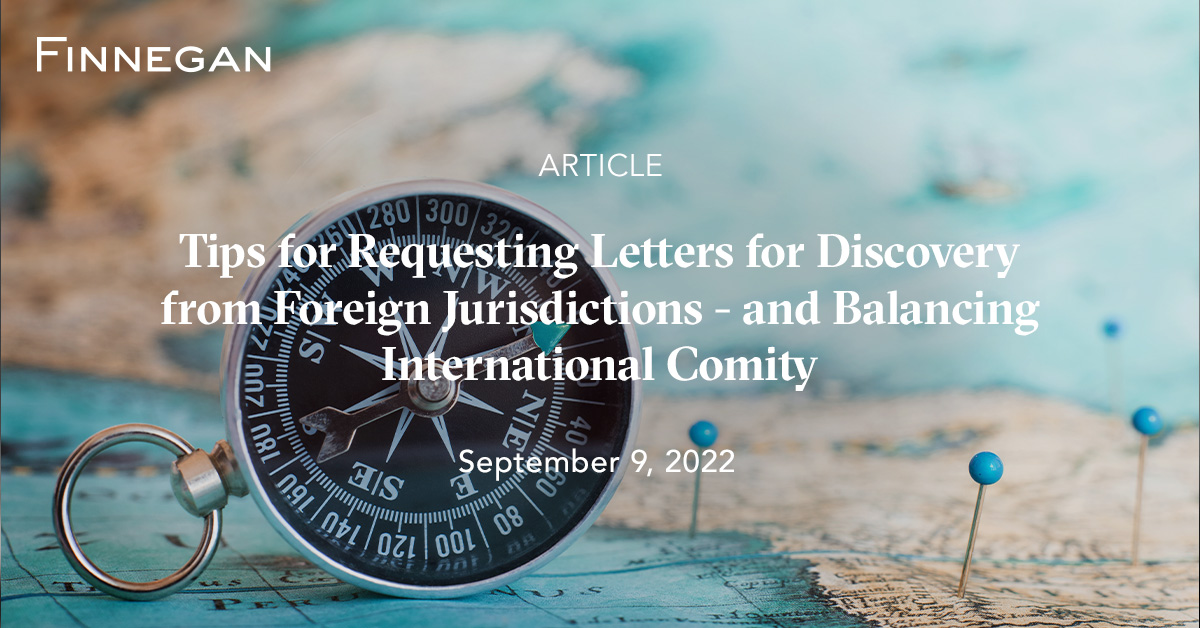The Duty of Letters Rogatory in International Law: Trick Insights
Letters rogatory act as a pivotal instrument in global law, facilitating cross-border lawful assistance by permitting jurisdictions to formally request proof and activities from each other. Rooted in historical criteria and formalized through arrangements like the 1970 Hague Convention, these demands are important for fostering global teamwork. Nevertheless, their application usually runs into significant difficulties, consisting of disparities in procedural delays and legal standards, which can hinder their effectiveness. Understanding the nuances of this procedure elevates important inquiries regarding global partnership and the possible reforms required to enhance its integrity. What effects might these obstacles have for future legal process?
Definition of Letters Rogatory
In the realm of worldwide regulation, letters rogatory serve as formal requests released by a court in one territory to look for assistance from a court in an additional jurisdiction. Letters rogatory. These demands are particularly considerable in cross-border legal proceedings, where the enforcement of a court's order or the celebration of evidence may be impeded due to administrative restrictions

The process normally needs the asking for court to express the particular info or activity required from the international court, sticking to the legal methods and conventions established between the jurisdictions included. Once issued, the letters rogatory are transferred with diplomatic channels, which may consist of consular offices or consular offices, to make sure that the request is recognized and acted on by the international court. In general, letters rogatory exhibit the cooperative structure vital for efficient worldwide legal procedures.
Historical Context
Although the method of letters rogatory has ancient origins, its formalization within the framework of worldwide legislation emerged significantly in the 20th century. Historically, such ask for judicial assistance were made use of in different legal customs, consisting of Roman legislation, where they promoted cross-border cooperation in legal matters. The concept obtained renewed attention with the rise of globalization and the enhancing complexity of worldwide lawful communications.
The mid-20th century saw the facility of treaties and conventions that sought to systematize the process of letters rogatory. Notably, the 1970 Hague Convention on the Taking of Proof Abroad in Industrial or civil Issues provided an organized method, boosting the efficacy of these demands - Letters rogatory. This duration noted a shift from informal plans to a much more methodical framework, which attended to the challenges postured by differing nationwide legal systems
As states ended up being more interdependent, the requirement for effective devices to collect evidence throughout borders emerged, strengthening the function of letters rogatory in helping with global participation. Today, they remain a critical instrument for getting evidence and making certain that justice transcends nationwide boundaries, showing the progressing nature of worldwide law in response to worldwide challenges.
Process of Issuing Demands
The procedure of releasing letters rogatory normally entails a number of critical actions created to guarantee that requests for judicial support are clear, certain, and certified with both domestic and global legal criteria. Initially, an event looking for assistance should prepare a formal request that details the important truths of the instance, the relief sought, and the specific evidence or testimony required. This file must be crafted with accuracy to satisfy the lawful needs of the jurisdiction in which it will be sent.
Complying with the preparation of the request, it is submitted to the ideal authority, frequently a court or a marked governmental company. This authority examines the request to guarantee it sticks to legal criteria and procedural norms. As soon as accepted, the request is sent to the foreign territory through polite networks.
Upon invoice, the foreign court evaluates the demand's conformity with its regional laws and practices (Letters rogatory). If accepted, it see this continues to perform the request, which may include the issuance of subpoenas or the collection of proof. Throughout this process, preserving clear communication between the asking for and getting jurisdictions is vital to make sure effective cooperation and the satisfaction of the request
Difficulties and Limitations
Limitations and obstacles often occur in the procedure of executing letters rogatory, typically stemming from varying lawful systems and procedures in between jurisdictions. One significant challenge is the varying criteria of admissibility for evidence, which can result in difficulties in the approval of documents asked for with letters rogatory. Additionally, the lack of uniformity in lawful terminology and interpretations can create misunderstandings, complicating communication between courts in different countries.
Moreover, delays prevail because of governmental procedures, as the demand may require to travel through several layers of lawful authorities prior to it is met. In some instances, the requested jurisdiction might do not have the needed sources or readiness to coordinate, better impeding the process. Language barriers likewise add to obstacles, as exact translation of legal records is important for ensuring that the intended message is shared without distortion.
Lastly, sovereignty concerns may develop, as some states hesitate to follow requests that they regard as infringing upon their legal autonomy. These obstacles highlight the intricacies intrinsic in making use of letters rogatory, necessitating higher harmonization and collaboration among international legal systems to improve their efficiency.

Impact on International Collaboration
Acknowledging the significance of letters rogatory in promoting international teamwork is important, as these requests facilitate cross-border legal help and advertise collective initiatives in civil and criminal issues. By making it possible for one territory to formally ask for aid from an additional, letters rogatory produce a structured legal framework that boosts the performance of worldwide communication in between judicial authorities.
Using letters rogatory helps to develop common count on and respect amongst nations, which is vital in a progressively interconnected world. They act as a device not only for gathering evidence but additionally for ensuring that lawful procedures are maintained throughout boundaries. This is particularly vital in combating global crime, where the failure to safeguard teamwork can weaken justice.
Furthermore, the dependence on letters rogatory can improve intricate content legal process, reducing hold-ups and uncertainties in international investigations. The step-by-step safeguards inherent in this procedure add to the protection of individual legal rights while facilitating participation amongst states. Inevitably, the impact of letters rogatory on global teamwork highlights their role as important devices in the promotion of justice, fostering a try this out joint spirit that goes beyond lawful systems and national boundaries.
Final Thought
In final thought, letters rogatory function as a crucial tool in worldwide legislation, assisting in cross-border lawful support and participation. Regardless of integral obstacles such as varying legal requirements and governmental hold-ups, their standard treatments promote trust among nations. The continued evolution of these systems is necessary for improving the effectiveness of international lawful procedures, eventually promoting stronger cooperation in both criminal and civil issues across jurisdictions. The relevance of clear communication in this context can not be overemphasized.
Letters rogatory serve as a critical instrument in international legislation, assisting in cross-border legal support by enabling territories to officially ask for evidence and actions from one another.The procedure usually needs the asking for court to articulate the details information or activity required from the foreign court, adhering to the lawful methods and conventions developed between the jurisdictions involved. Historically, such demands for judicial help were utilized in various legal practices, including Roman regulation, where they promoted cross-border cooperation in legal issues.The process of providing letters rogatory normally includes a number of critical actions designed to guarantee that requests for judicial aid are clear, details, and certified with both worldwide and domestic lawful requirements.Moreover, delays are typical due to bureaucratic procedures, as the request might require to pass via numerous layers of legal authorities prior to it is met.